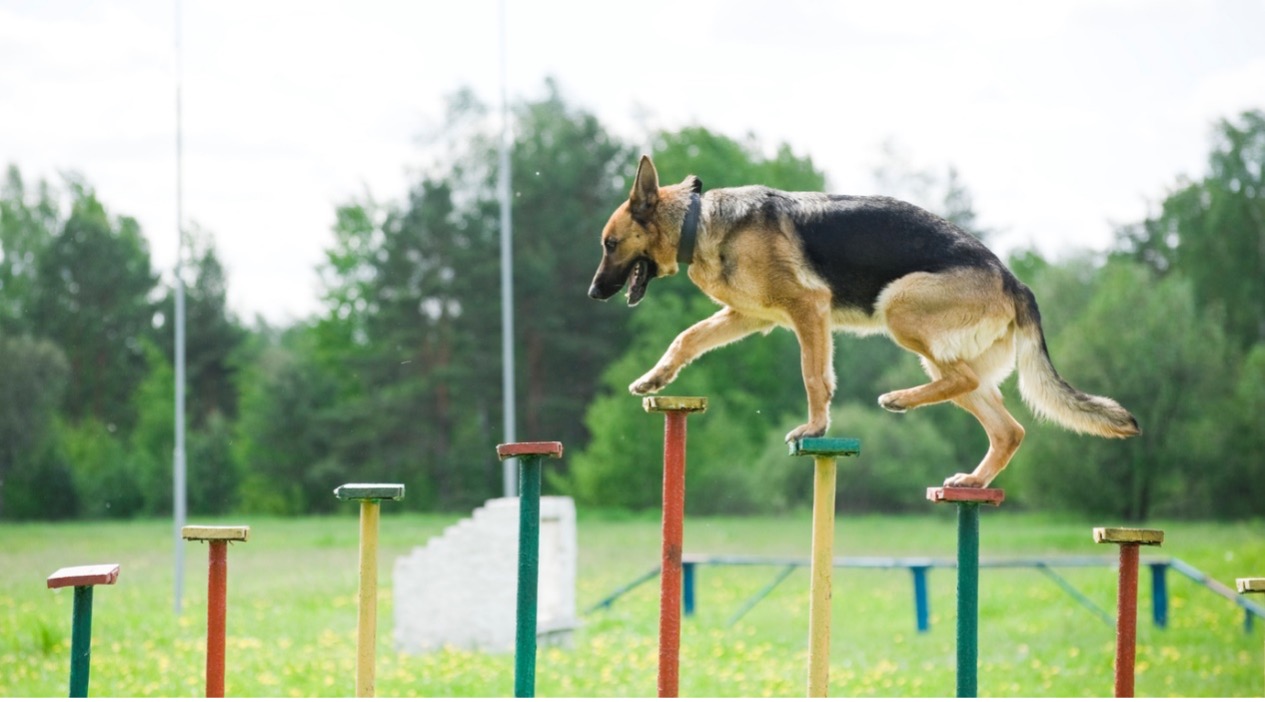What do bomb detection dogs, agility competitors, and couch surfing felines have in common? While our pets probably aren’t saving lives or winning prizes, their mobility is still essential. Joint care for dogs and cats is crucial to their day-to-day function.
Causes of Joint Pain in Pets
Joint inflammation afflicts all ages. Younger patients may suffer from conditions such as hip or elbow dysplasia, OCD or may have sustained an injury. Arthritis is one of the most common joint diseases in pets, it affects pets of all ages. It causes inflammation of the joints, which leads to swelling, stiffness, and loss of mobility. 20% of canines suffer from osteoarthritis. 90% of cats over the age of 10 suffer from osteoarthritis.
Symptoms of Joint Pain or Arthritis
During routine exams, pet owners often say, “My pet is not in pain.” However, it is essential to understand that our pets cannot communicate with us verbally. Pets are usually very stoic until the pain reaches a high intensity. Pets do not always vocalize when they are in pain. Common symptoms of joint pain include:
- Lethargy.
- Difficulty grooming or eliminating.
- Frequent slipping while walking or running.
- Licking, chewing, or biting the affected area.
- Hesitating to jump.
- Lagging behind on walks.
- Limping and stiffness, especially after playing.
- Loss of muscle mass.
- Restlessness while sleeping.
- Loss of Appetite.
- Irritability.
No matter the reason for joint pain, there are things you can do to help ease the symptoms and prevent further damage.
Preventing Joint Pain
Prevention is always the best medicine, especially for large breed dogs, service dogs, and working dogs. Additionally, pets with past joint trauma or abnormalities are at a higher risk of developing painful joints.
1. Keep Your Pet at a Healthy Weight
Clients with high-risk patients must keep their pets at a healthy weight. Extra weight causes extra stress on a patient’s joints. Purina has an educational video for cat and dog owners to determine your pet’s body condition.
To learn how to score a cat’s body condition watch here:
https://www.purinainstitute.com/centresquare/nutritional-and-clinical-assessment/how-to-perform-body-condition-assessment-cat
To learn how to score a dog’s body condition watch here: How to evaluate dog body condition | Purina Institute
2. Joint Health Supplements
Wags and Whiskers also offers veterinary products to support joint health. Dasuquin Advanced is a popular supplement with our patients. It has a canine and feline formula. It helps maintain cartilage structure and inhibits enzymatic breakdown of cartilage. It costs less than $1 per day for Dasuquin Advanced. Dasuquin for cats also helps maintain bladder health by protecting the integrity of the bladder lining.
3. Prescription Pain Relief
Canines with visual signs of joint pain may need an NSAID in addition to joint supplements. NSAIDs such as Galliprant and Deramaxx give 24-hour pain relief and reduce inflammation.
Final Words
Healthy joints make for a healthy pet! We want as many years as we can to play and lounge with our furry family members. Please call Wags and Whiskers today to schedule an evaluation for your pet’s joint health.
Sincerely,
Dr. Janelle McFarland
